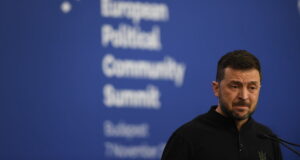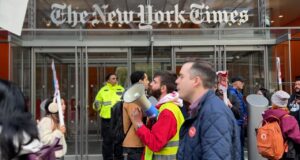Benjamin Netanyahu has agreed to a ceasefire deal with Hezbollah, an Iranian-backed militia based in Lebanon, after weeks of negotiations with the US and other Western allies.
In a televised address on Tuesday The Israeli Prime Minister said he would bring a ceasefire outline before his full cabinet for approval, with a vote expected to follow.
It came after the security cabinet approved the deal earlier today, according to Israeli media. In his remarks, Netanyahu said the Israel Defence Forces (IDF) inflicted lasting damage to Hezbollah, claiming the group, which is proscribed as terror organisation by nations including the UK and the US, is “no longer the same”.
“We set them back decades. We have destroyed many missiles and rockets, we have killed many terrorists,” he said.
The proposal, which is led by Washington, would see both Israel and Hezbollah withdrawing their forces from south Lebanon over a 60-day period, as per BBC News.
Hezbollah would remain north of the Litani River, some 19 miles north of the border, with a bolstered Lebanese national army and troops from Unifil, the United Nations Interim Force in Lebanon, filling in to avoid a security vacuum.
Netanyahu said any attempts by Hezbollah to rearm would represent a violation of the deal, and vowed Israel would “respond severely” in such an event.
He added that if Hezbollah breaks the terms of the deal, Israel would strike.
Under the terms of the deal, Israel is allowed to intervene militarily in Lebanon if an immediate threat from Hezbollah is detected.
Less immediate threats, such as becoming aware of a tunnel south of the Litani, will be reported to a five-nation committee overseen by the United States, under the agreement.
The Israeli leader said some have warned that the ceasefire would prevent Israel from returning to Lebanon if it needs to, but he ended by saying “an agreement can be enforced and we will enforce it”.
US President Joe Biden will deliver remarks at 2:30 p.m. ET (7.30pm GMT), according to the White House.
Netanyahu‘s announcement came after Israel launched a day of air strikes on the Lebanese capital Beirut, as the Israeli security cabinet discussed the proposed deal.
Hezbollah began firing rockets, missiles and drones into Israel the day after Hamas’ October 7, 2023 terror attack ignited the war in Gaza.
Israel launched retaliatory airstrikes in Lebanon and the conflict steadily escalated, erupting into all-out war in September. Israeli forces invaded Lebanon on October 1, this year.
Hezbollah has fired at 13,000 missiles, drones and rockets in the months since, killing 75 people, as per the newspaper.
Israel has also launched thousands of air strikes and attacks against Hezbollah across Lebanon over the course of the conflict.
In an update on Sunday, the Lebanese health ministry said the offensive had killed more than 3,750 people, left around 15,630 more wounded, with some 1.4 million people displaced from their homes, as per CBS News.




